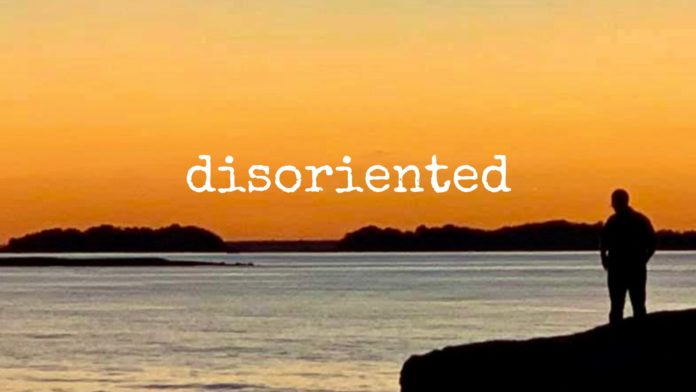The title of the interview was “The Pleasures of Disorientation”–a phrase that caught my attention. It was another in Conversations with Billy Collins, and from it came these words, in response to the question, “What is it about mystery and disorientation that is so appealing?”:
For disorientation to be a pleasure–an odd concept in the age of the GPS–one has to feel relieved to let go of the helmet of opinions we tend to wear everyday. . . . How refreshing to take a break from always knowing where we are, or at least fooling ourselves into thinking so.–Billy Collins (91)
My first thought went to my favorite coffee shops in the whole world, the trinity of Cocoa Cinnamons in Durham, North Carolina because, in their post this week about the tenth anniversary of their first shop on Geer Street (the shop that was the genesis of my Cocoa Cinnamon cookie), they talked about the tenth anniversary blend they are creating called, “Your Head is Round so You Can Change Your Mind.” The name, I learned, is an adaptation of a quote from artist Francis Picabia, “Our heads are round so our thoughts can change direction.”
In my sermon last Sunday, I talked about John the Baptist calling on people to repent–to turn around, to go in a new direction if they wanted to understand what life was really about; perhaps we could say he was calling them to disorient their lives.
Orient.
Sixty-six years on and it had never hit me that the word we use to talk about our perspective on life is the ancient word for the East when a definitive article is added, as in The Orient. It turns out, there’s a reason why. The oldest Latin roots mean “the rising, the part of the sky where the sun rises,” which, of course, is the east. Once the European travelers moved that direction, they used themselves as the center of the world and Asia became The Orient.
At its roots, orientation has to do with facing east–facing the sunrise. Our words origin and original share the same “rising” roots of something appearing on the horizon.
Perhaps we don’t make the connection so much anymore because North has become our primary direction–true north, the North Star–or maybe I am just slow to notice. Either way, when it dawned on me (see what I did there?), I went back to Collins’ words about dis-orienting, not so much to think about not looking east but to sit with “how refreshing to take a break from always knowing where we are.”
Not long after we moved to Guilford seven years ago, we were down at the marina at dusk watching a beautiful sunset and then I realized I was standing on the East Coast watching the sun go down. It was disorienting. When we got home, I found a map and realized our slice of the shoreline faces almost due south, even though we are on the eastern edge of the country, so we can see the sun both rise and fall. The explanation is not nearly as rich as the experience of surprise to see the sun set where I did not expect it to do so.
Billy Collins is right: it was a pleasure.
I was on a retreat many years ago and we walked into a room and all the objects in the room had labels on them that gave them new names. The chair had a “lamp” sticker on it; the one on the table said “coaster:” the lamp was a “rug:” and so on around the room. Our instructions were we had to talk about the objects using their new names as a way to disorient us, even though they didn’t use that word. We moved from those objects to philosophical and theological concepts that were the furniture of our thoughts to see what else we could shake loose and send our thoughts in new directions.
The Francis Picabia quote is even stronger to me juxtaposed with Collins saying we have to be willing to take off our “helmet of opinions we tend to wear everyday” because the caroming thoughts are all inside the helmet–not much can protect us from internal disquietude. We were built to be disoriented, to be caught by surprise. Perhaps the hunger for a map is more learned than it is inherent in us. We were made to wonder.
I did not know anything about Picabia before I started writing tonight. One article said, “Like no other artist before him, Picabia created a body of work that defies consistency and categorization, from Impressionist landscapes to abstraction, from Dada to stylized nudes, and from performance and film to poetry and publishing. A primary constant in his career was his vigorous unpredictability.” He appears to have lived most of his life without a helmet.
My friend Donna wrote this week in response to my newsletter and shared words she had heard in a recent sermon: “The opposite of faith is not doubt; it’s certainty!” Yes. Hope means looking at the horizon and finding joy in the fact that anything can happen. Certainty and cynicism are cousins. I write that sentence after I have wondered from a poet to an etymological dictionary to a coffee shop to a painter, making stops at an old retreat and a sunset on the East Coast, and written it all down as though you could see the thoughts changing direction.
Here is where we have ended up. Now, what was the question?
Peace,
Milton
